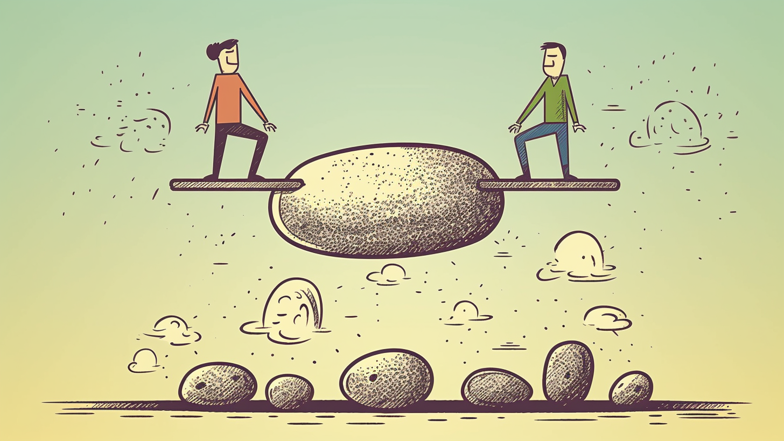
Why Life Balance is Important
Life balance is the state of equilibrium where an individual can manage the demands of their personal and professional life. It helps foster a sense of harmony that leads to overall well-being and fulfillment. Without life balance, it's easy to become overwhelmed, anxious, and stressed.
Strategies for Achieving Life Balance
1. Prioritize Tasks
It's essential to prioritize tasks to manage time effectively. Often, we pile up tasks that are urgent but not necessarily important. Categorize them according to their importance and urgency, then tackle them according to their priority level. This strategy helps in reducing stress and increasing productivity.
2. Develop a Routine
A routine helps get things done with minimal effort. Plan your day and week in advance, allocating time to various tasks and activities. Scheduling activities in advance is essential, particularly for family time or hobbies. Keeping a routine helps find a sense of equilibrium in your life, reducing stress and anxiety.
3. Take Breaks
Breaks are essential to manage stress and increase productivity. Take small breaks throughout the day to reduce stress. It can be as simple as taking a walk, stepping away from your computer or phone, or spending time on a hobby. Additionally, take regular vacations to disconnect from your work and personal life.
4. Eliminate Distracting Habits
They say old habits die hard, but they can be broken. Eliminate distractions that hinder your productivity or disrupt your life balance. This includes time-wasting activities such as social media, unhealthy habits, and negative thought patterns. Focus on activities that enhance your well-being.
5. Delegate Tasks
Delegation helps lessen your workload, allowing you to focus on things that require your attention. Learn to delegate tasks at work and home to reduce stress and increase productivity. Delegation also empowers your team members or family, allowing them to develop essential skills and make decisions.
6. Establish Boundaries
Establish clear boundaries between personal and professional life to avoid conflicts and stress. This includes unplugging from work after hours or during vacations, saying no to last-minute requests, and communicating your boundaries with your family members and colleagues. Boundaries help manage expectations and prevent burnout.
7. Take Care of Yourself
Self-care is crucial to balance your life effectively. This includes eating healthy, exercising, and getting enough sleep. Make time to pursue your hobbies and interests, spend time with friends and family, and practice relaxation techniques such as yoga or meditation. Taking care of yourself enhances your overall well-being and helps find balance in your life.
The Bottom Line
Life balance is crucial to ensure overall well-being and fulfillment. It's essential to manage the demands of personal and professional life effectively to avoid stress and burnout. Prioritizing tasks, developing routines, taking breaks, eliminating distracting habits, delegating tasks, establishing boundaries, and taking care of yourself are crucial strategies to achieve life balance. Implementing these strategies can help increase productivity, reduce stress, and foster a sense of harmony in your life.
Comments
Post a Comment